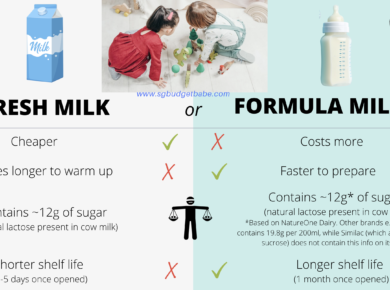Did you know that your skin absorbs up to 60% of what you put on it?
It’s funny that while most of us understand the importance of eating clean (the organic food industry has boomed in the last decade), fewer of us take concern of what we apply topically on the biggest organ on our body, our skin.
If you thought the FDA (or HSA, in Singapore’s case) does a good job in regulating our cosmetics and skincare products, you’ll be surprised to find that this is not really the case.
 |
| Taken from the Health Sciences Authority website. |
Apart from the fact that skincare products are not assessed or approved by HSA before they’re allowed to be sold in Singapore, you should also know that the ASEAN Cosmetic Directive stipulated by HSA is generally just a guideline for product packaging. The truth is, few companies even follow these regulations, if any at all. For instance, did you know all product ingredients need to be stated on the product itself (or on its packaging)? But just take a look at most of the Korean brands being sold here where you barely even understand the ingredients they use (yet these products are selling like hotcakes, if I might add. Etude House just opened their largest flagship store in Asia at Wisma Atria not too long ago).
The truth is, the skincare industry is highly unregulated, and the problem is not just in Singapore alone. There are hundreds of thousands of synthetic chemicals used in cosmetic products, many of which your body absorbs without you realizing it. Many of these chemicals are known skin irritants, linked to cancer, can interfere with pregnancies and cause birth defects…yet we continue to apply them on our skin! Scientists have found such cosmetic ingredients like phthalates and fragrance compounds in human tissues and breastmilk.
“Did you know that substances placed on your skin or scalp are actually absorbed into your system up to 10 times faster than substances you eat?” Credits: Soboskincare
In fact, U.S. studies have found evidence of 287 toxic chemicals (out of the 400 screened) present in the umbilical cord blood of newborn babies. They included toxins like mercury, polybrominated diphenyl ethers and many others, which are known to cause birth defects. However, these study results have largely been ignored by the mass media. (Study conducted in 2005 by the Environmental Working Group)
Of course, most of us average folk will not be able to completely avoid chemicals in our daily lifestyles. Yet, there are certain areas where we might want to exercise greater caution in. Budget Babe recommends being picky about the ingredients found in:
1. Stuff you apply and do not wash off
2. Shampoo and conditioner
3. Any product you put on babies and children
4. Anything you soak in for an extended period of time
There are too many toxic chemicals out there for me to list, but here’s my list of common ingredients I personally avoid:









6 comments
Hi,
I’ll be learning about some of the features as I go along. I hope that it eventually proves easier for you the reader to follow the postings and comments.Only special product for you Best supplement packaging.
Have a nice day..!!
This is really an interesting topic. Congratulations to the writer. I'm sure a lot of readers having fun reading your post. Hoping to read more post from you in the future. Thank you and God bless!
Rica
http://www.imarksweb.org
We actually need to understand the importance of using natural skin care products. Most of the available beauty products have harmful ingredients which make our skin dull. So, make your pick carefully or visit http://www.purelx.com.
I am very happy to visit your site and i did like it. I was able to get some informative topics. keep it up and you can also visit my site for your reference. Thank you and have a good day.
n8fan.net
http://www.n8fan.net
I hope every persons need to avoid harmful ingredients. I like natural that product have no any effects.
harmful ingredients to avoid in skin care products
If you want to know that your skin absorbs up to 60% please visit this blog:
http://www.madefromearth.com/ingredients-avoid-skin-care-products
Comments are closed.